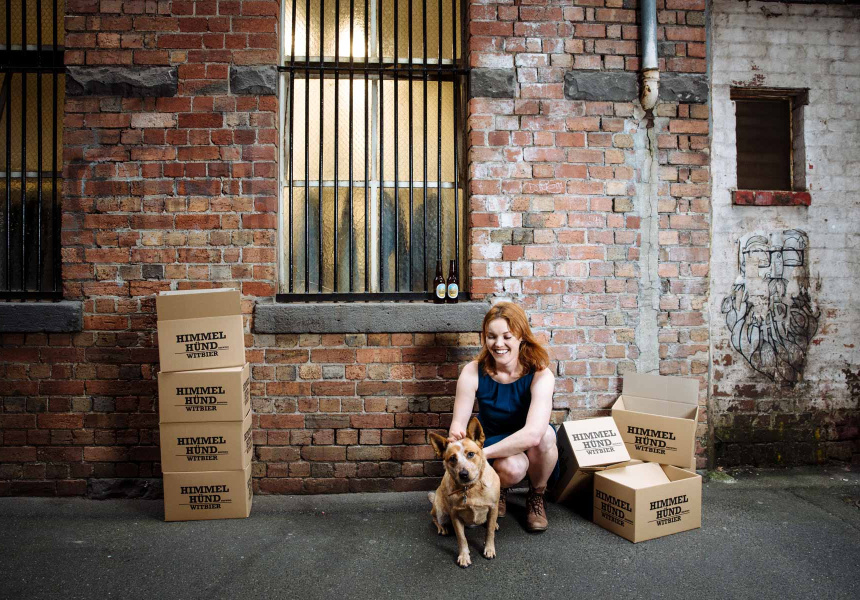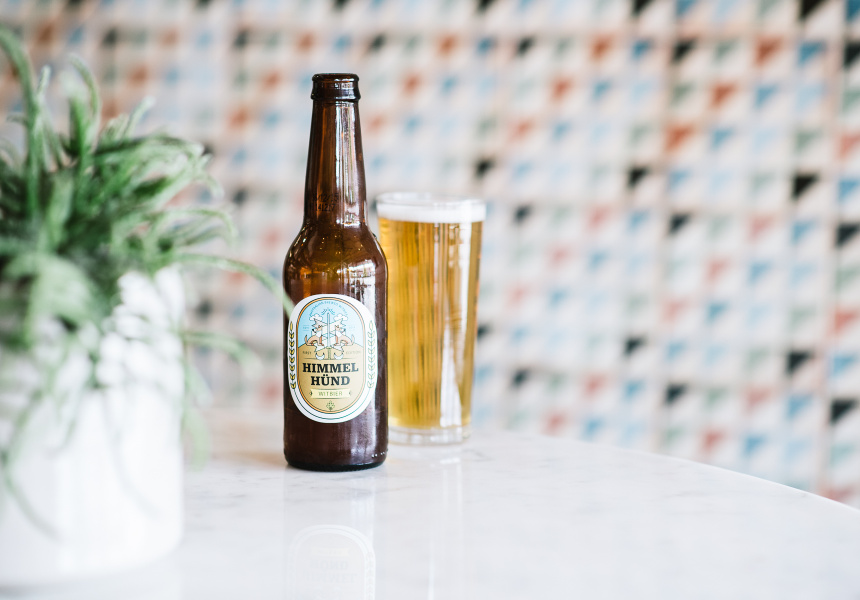Making your own beer has come a long way since the days your uncle tinkered with a homebrew kit in his shed. The explosion of interest in craft beer has meant it’s never been easier to get into the brewing business, but while the path to producing your own beer is increasingly well-worn, that doesn’t mean it’s an easy one. We spoke to three people making their own way in the craft-beer business to find out what it takes to make beer your career.
The newcomer brewer
Annabel Meagher of label Himmel Hund is a relative newcomer to craft beer. Her interest was sparked while studying chemical engineering and science at university. While she did complete a Diploma in Brewing through Federation University, she’s not convinced doing a course is essential for those starting out.
“I think courses are good, but not 100 per cent necessary,” she says. “It’s more about learning on the go. It was worthwhile because you can’t simply scale up a home-brewing recipe when you brew on a large scale – you need to understand the equipment and its capabilities, and be able to calculate and brew a recipe consistently.”
We think you might like Access. For $12 a month, join our membership program to stay in the know.
SIGN UPPractical experience was also something Meagher was keen to get. “I just emailed and phoned all the breweries in and around Melbourne looking for work experience in the industry. I took a position at Matilda Bay Brewery where I cleaned and filled kegs or worked on the packaging line. The brewers were great to work with and I followed them around on the brew tower a couple of times a week.”
Like a lot of labels starting out, Himmel Hund teamed up with an established brewery to brew under contract (also known as “gypsy brewing”). This means you can take advantage of their experience. “They gave us tips about licensing, logistics, getting labels printed, where to order boxes, cold storage – there are a lot of details to think about.”
While the brewing side of things is what attracts people to craft beer, Meagher says that without business skills your beer is going nowhere. “If you love beer and brewing, but have no interest in business, then you should probably consider working for someone else. Most of your work when you start your own small craft brewery will include administration, sales, social media, marketing, event planning, ordering stock and sorting through a lot of paperwork.”
The beer retailer
Chris Menichelli from Richmond-based speciality-beer retailer Slowbeer has sold beer for the past eight years. He’s seen the craft-beer market explode over that time. “The growth has been exponential year on year, particularly the last two-to-three years.” But for those looking to get into the area now, the news isn’t quite so good. “I’d imagine the market will continue to grow, but perhaps at a slower rate than what is currently being experienced. I think there’ll be a degree of market consolidation, which will slow things down a touch and stabilise the industry.”
If you want your beer to be noticed, Menichelli says marketing and branding is important, but quality is still the deal breaker. “Offer unique and interesting beers to grab people’s attention and show what you’re about, but you also need approachable, well-made beers for everyday drinking. It’s a balance.”
Quality may boil down to personal taste, but that doesn’t mean you can afford to ignore your customers. “From a production point of view, you need to know the market, what sells, what doesn’t and where your product may fit in. With so many new breweries opening all the time, this is more important than ever.”
The best way to find out what the market wants? “Don’t be scared to ask questions and try as many beers as you can. It’s the only way to get your head around it all. In that respect, getting a bar job at a brewery or good beer venue with like-minded, passionate people makes it easier.”
The established brewer
Mikey Lowe, brewer at Camperdown’s Wayward Brewing, feels that while a solid knowledge of the practical side of things is essential, the important thing is to make a statement.
“People want to define their individuality. Craft has entered the cultural consciousness from all angles, not just in beer. There are so many ways a person can express their individuality and brand themselves. It’s exciting.”
In Lowe’s book, the best way to establish the individuality required to stand out in the market – and make a good beer in the process – is to know your subject. “Try as many beer styles as you can – responsibly. Have a flair for inventiveness and non-conformity. Listen rather than talk, you can only repeat what you already know when opening your mouth.”
That includes listening to feedback. “Be prepared for criticism. It is a great tool for improving.”
This article is part of Broadsheet’s Craft Beer Quarterly, produced in partnership with James Squire.



